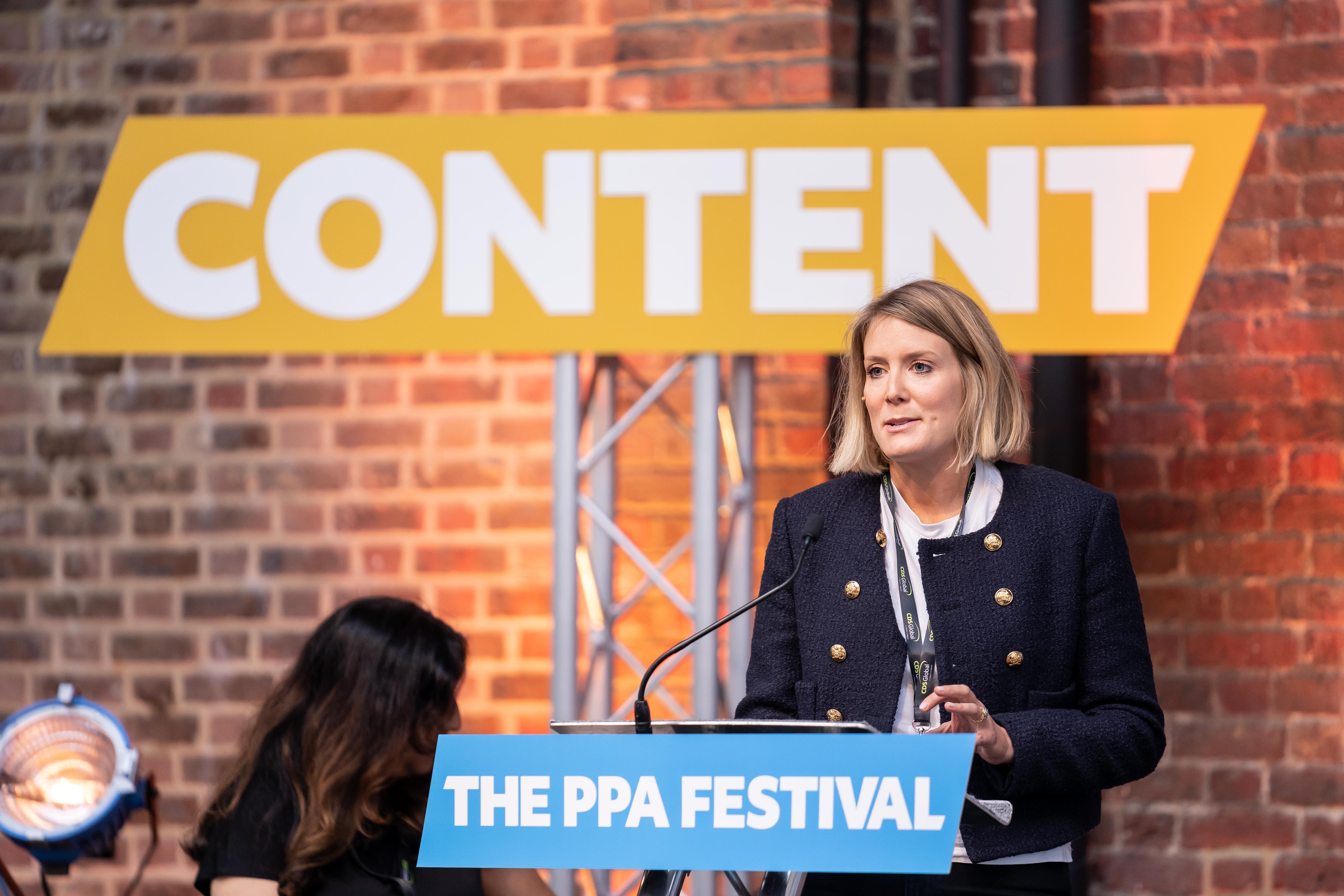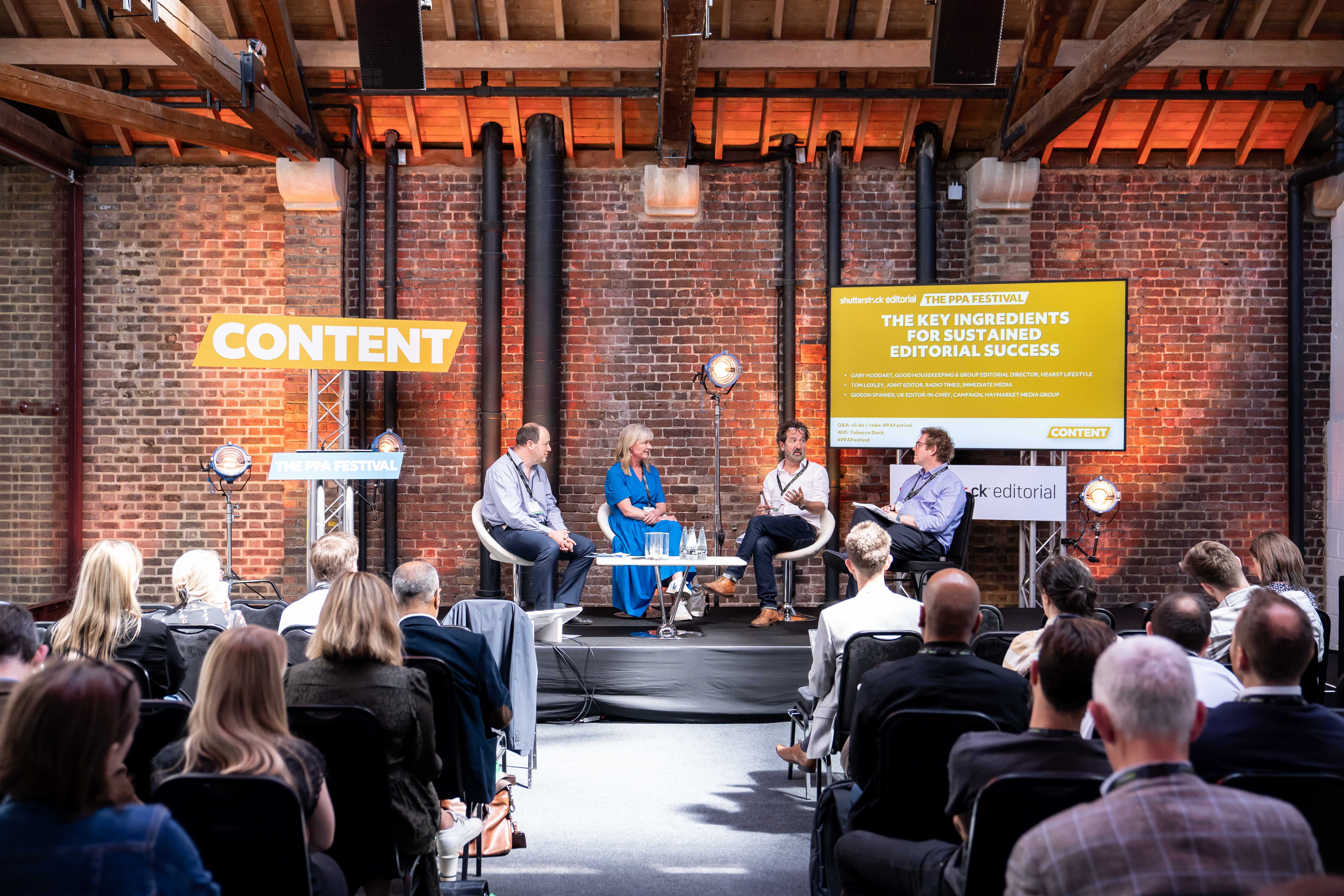
Bottom-line losses: Counting the cost of copyright abuse
Content is a precious commodity for publishers, meaning instances of illegal copying come at a cost. Here, in the first of two articles, Matt Aspinall,
Industry News
Industry News
What does it mean to be an editor in 2022? On the CONTENT stage at this year’s PPA Festival, our stellar line up provided the audience with a wealth of insights into the attributes required in today’s multi-channel editorial world. Here are five key takeaways.

Champions for causes that matter
For Grazia editor Hattie Brett, campaigning has never felt more important in a world where consumers want brands to be more than just a ‘trend supporter’. It all starts by questioning where your audience’s passion lies – what are the issues that really matter to them? When you pick up their response to these issues, then you need to react quickly and fulfil your responsibility as a journalist, giving the audience a voice and taking action on their behalf. In Grazia’s case, that has meant a busy few years tackling mental health awareness, the rough sex defence, childcare costs and cyberflashing. The BMJ might not be on quite the same campaigning streak but the title’s decision to raise the issue of racism in medicine opened the door to a groundswell of cross-industry support. Dr Navjoyt Ladher said the title learned the importance of focusing on a campaign purpose, planning ahead and maintaining momentum in order to move the needle and make things happen.

Globally aware and locally relevant
In a connected world, brands also need to connect their editorial thinking at a global level. Ask Adam Baidawi, who says that siloed working practices at international editions of GQ are being replaced by a global, collaborative approach that avoids unnecessary duplication of effort. William Drew explained that The World’s 50 Best Restaurants is a brand that also adopts an international mindset – it might be focused around a centralised, UK-based team but its network of local contacts provides the means to tap into local tastes and sensibilities. This highlighted the importance for both speakers of maintaining the balance between a central voice and localised tone (in print or events), and how impactful stories and universal themes have the power to travel throughout the world.
Representative of their readers
What started out as a gender diversity initiative at one BBC programme has evolved into the BBC 50/50 Project and this session looked at how it is being adopted among emap brands – and New Civil Engineer in particular – as a way of bringing greater diversity and inclusion to published content. One of the lynchpins to success is having an internal champion to push things forward – a role fulfilled by Martin Quinn at emap, who has overseen growth of the scheme to 13 titles in the group. Editor Claire Smith said representation within New Civil Engineer’s pages was crucial to address a lack of women entering the sector and their high drop-out rate. Achieving that through 50/50 is driven by a simple combination of commitment and counting. It remains a challenge, but the title has made real progress in print and events. The BBC’s Miranda Holt concluded with information on how the scheme is now going beyond gender, focusing on ethnicity and disability as part of a wider inclusivity agenda.
Endless innovators

With a combined age of 253, Good Housekeeping, Radio Times and Campaign are titles that have more than stood the test of time. But while you need to stay true to your brand proposition, you can’t be weighed down by your heritage – you need to respect it and use it as a platform to innovate, said Good Housekeeping’s Gaby Huddart – a brand that instead of stopping to celebrate its centenary is looking ahead with moves into events, TikTok and new brand licensing deals. As editor, it means being across a range of platforms that each serve their own purpose, finding the sweet spots where content works for audiences and commercial partners alike, and respecting the editorial heart of the title. All panellists were agreed that overcoming the challenges of the past few years has been an achievement – noting that Tom Loxley of Radio Times and Gideon Spanier of Campaign both started in their roles immediately prior to lockdown – but they were excited at coming back together as teams. After all, that’s the place where the editorial magic really happens.
A trusted voice amid the noise
Social media channels are hungry animals. Laurence Mozafari of Digital Spy said it’s about understanding what each platform can give you – is it revenues, engagement, visibility? – and then focusing your efforts accordingly. Better to do fewer things well than spreading yourself too thin. The panel also advised using the tools at your disposal and going back to the data to understand where and how your content resonates. There was also a word of warning from HSJ’s Alastair McLellan that agility can be an asset but it’s equally important to know that reactive commentary can sometimes ignite strong reactions. Ria Jones of The Economist underlined the invaluable role of publishers in using social media to speak truth in the world. This point was underlined by Laurence and echoed by Alastair, who summarised the nature of this give/take relationship: “It’s about using the power of social media to show the power of our journalism.”
The CONTENT stage was sponsored by Shutterstock Editorial

Content is a precious commodity for publishers, meaning instances of illegal copying come at a cost. Here, in the first of two articles, Matt Aspinall,

Last week more than 50 publishing professionals, from a variety of consumer and B2B businesses, met to review over 250 entries from more than 70 companies, ultimately deciding on the shortlist and winners.
Chancery House, 53-64 Chancery Lane, London WC2A 1QS

If you have a member login, enter your details below. Please note, that your login is for PPA.co.uk only and not for our event sites.
If you are a member but don’t have an account yet, you can setup your account here.
Any problems, please contact membership@ppa.co.uk.